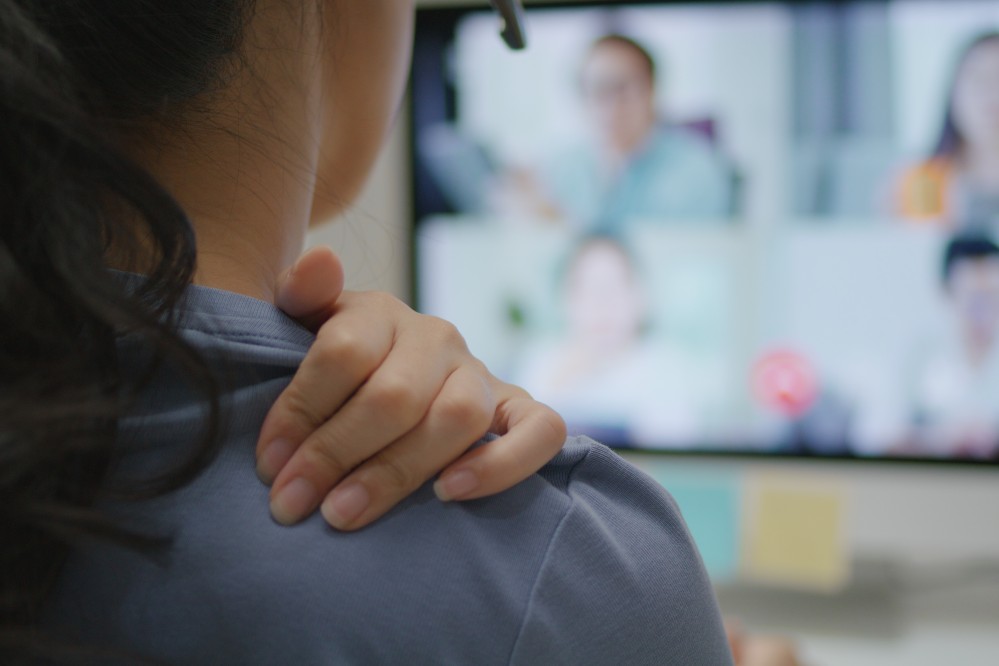Acupuncture is an ancient Chinese method that has been used for centuries to address many health issues and is still employed today. This therapy has numerous benefits—it restores health, energy, and the body’s equilibrium. Its main purpose is to make you feel better and healthier after the treatment. While it is important to prepare for an acupuncture treatment in advance, it is essential to also know the aftermath.
But are you familiar with the post-treatment effects of acupuncture? If not, we have compiled this article highlighting what to expect after acupuncture, followed by tips on what not to do after acupuncture treatment. But our suggestions don’t stop there! Keep reading to learn more!
Common Immediate Reactions After Acupuncture Treatment
After an acupuncture treatment, the body often undergoes noticeable changes as it responds to the stimulating effects of the needles. A feeling of deep relaxation and tranquility frequently washes over the patient, promoting a serene, almost meditative state. Muscles that were previously tense and knotted loosen up, releasing held tension.
While every experience is different, here are some of the common bodily reactions after acupuncture:
Physical sensations

During and shortly after a session, patients often feel a variety of physical sensations as their bodies respond to the acupuncture treatment. One common sensation is slight muscle soreness or tenderness at the needle insertion sites. This discomfort is typically very mild and short-lived, resembling the feeling after a massage. Patients may also notice tingling or warmth in certain areas, even those far from the needle sites. These sensations indicate improved circulation and energy flow along the targeted meridians.
As the session progresses, many people experience profound relaxation and tranquility. Their tension melts away as their bodies shift into a parasympathetic state, which promotes healing and rejuvenation. Some describe it as a floating sensation as if they drift into a peaceful, meditative state.
By the end of the treatment, patients often feel calm yet energized, enjoying a renewed sense of vitality and well-being that can last for hours or even days. While experiences vary, these sensations are positive signs that acupuncture stimulates the body’s innate healing mechanisms, helping restore balance and optimize functioning.
Emotional reactions
Acupuncture can impact a person’s emotional state during and after treatment. While physical sensations like tingling or warmth are common, many patients also notice distinct changes in their mood and emotions, such as:
– Euphoria: Some individuals report feeling a blissful, almost euphoric sensation as the acupuncture needles stimulate the release of endorphins and other feel-good neurotransmitters in the brain.
– Emotional release: Acupuncture unlocks pent-up emotions, leading to an unexpected release in the form of laughing or crying. This release is the body’s way of processing stuck or stagnant emotional energy.
– Relaxation: Many patients experience a profound sense of tranquility and peacefulness during acupuncture as their nervous system shifts into a parasympathetic state. Some even drift into a sleep-like state on the table, waking feeling refreshed and renewed.
– Catharsis: For some, acupuncture can trigger a powerful emotional catharsis. Long-buried traumas or unresolved issues may surface to be acknowledged, felt, and released. Afterward, people often report feeling unburdened, cleansed, and more at peace.
By regulating the flow of Qi and balancing the body’s energy, acupuncture allows emotional healing to occur naturally, without the mind’s inhibitions and defense mechanisms getting in the way.
Skin reactions
Minor skin reactions are normal after an acupuncture treatment. Patients notice small red dots, slight bruising, or mild itchiness at the needle insertion sites. This is because acupuncture needles, although very thin, still mildly puncture the skin’s surface. The body reacts to these tiny “injuries” by increasing blood circulation to the area to promote healing.
The stimulation of nerve endings and release of histamine can also result in localized itching sensations. Rest assured, these skin reactions are brief and harmless, usually subsiding within a few hours to a day. They are simply signs that your body responds to the treatment and activates its self-healing mechanisms.
Positive Changes After Acupuncture Treatment
Acupuncture acts as a catalyst, stimulating the body’s innate healing abilities and enhancing overall well-being. Patients often experience a range of positive changes following treatment, including physical, mental, and emotional improvements that can have long-lasting benefits, making daily life easier.
Physical benefits
The therapeutic effects of acupuncture often lead to an overall improvement in physical well-being. As the body starts to heal and rebalance itself, many people feel more “in tune” with their physical self. They notice the little aches and pains subside as their body moves more easily and fluidly.
Some of the key physical benefits patients commonly experience include:
– Reduces pain and stiffness in muscles and joints
– Increases mobility and flexibility
– Enhances circulation and blood flow
– Improves sleep quality and addresses various insomnia symptoms
– More energy and vitality
– A strengthened immune system
– Faster recovery from injuries or surgery
Mental and emotional benefits
As the ultra-fine acupuncture needles precisely target specific points on the body, they can have a profound impact on mental health and emotional well-being. The gentle yet powerful stimulation helps to clear away the hazy mental fog that so often clouds the mind, allowing thoughts to flow more freely and focus to sharpen.
Stress and anxiety, which can feel like a constricting vise around the head, begin to melt away as acupuncture triggers the release of endorphins and other feel-good chemicals in the brain.
Research shows that acupuncture can help change the levels of certain chemicals in the body called neurotransmitters, such as:
– Monoamines: Increased levels in the blood can positively affect the immune system.
– Catecholamine (CA): Reduces inflammation while increasing anti-inflammatory substances.
– Serotonin: Affects immune cells and helps regulate various immune functions through different receptors.
Long-Term Improvements
The cumulative benefits of regular acupuncture sessions can be truly transformative for those suffering from chronic conditions. Each strategically placed needle activates and amplifies the body’s innate healing mechanisms. Hormones begin to regulate and rebalance, and chronic pain that once seemed an inescapable part of life starts to fade.
Some key examples of the long-term benefits of regular acupuncture include:
– Regulates menstrual cycles and improves fertility
– Dramatically reduces frequency and intensity of migraine headaches
– Alleviates chronic joint pain and improves range of motion
– Lowers stress levels and better overall mood and emotional balance
– Enhances immune function and fewer sick days
– Better quality sleep and more stable energy throughout the day
Side Effects to Be Aware Of
While acupuncture is generally considered a safe and well-tolerated treatment, there are some potential side effects to be aware of. The most common side effects are relatively mild and include:
– Pain or soreness
– Bleeding or bruising
– Lightheadedness
– Fatigue
– Infection
On rare occasions, symptoms may briefly intensify, or new symptoms can arise after the treatment. This could be part of the healing process as your body adjusts. Alert your practitioner if symptoms persist or concern you. Extra precautions are needed for people with certain conditions like bleeding disorders, pacemakers, or pregnancy. Always disclose the full health history to your acupuncturist.
Post-Acupuncture Care Tips for Optimal Recovery

After an acupuncture session, it’s important to take care of yourself to help your body heal and get the most out of the treatment. Here is what you need to focus on:
Rest and hydration
Proper rest and hydration support your body’s innate healing mechanisms stimulated by acupuncture. They benefit in restoring balance and allowing the positive effects to unfold. Make sure to:
– Get plenty of sleep the night of your treatment to allow the body and mind to deeply relax and heal.
– Drink ample water before and after to help flush out toxins that may have been released.
– Take it easy and avoid strenuous physical activity for the remainder of the day.
– If you feel tired, listen to your body and rest.
Activities to embrace or avoid
Prioritize activities that support your body’s natural healing process while avoiding those that could disrupt the delicate rebalancing initiated. During this time, gentle, mindful practices like yoga, meditation, and light walking are highly beneficial. On the other hand, it’s best to steer clear of intense workouts, saunas, hot tubs, or cold plunges immediately following acupuncture.
Journaling your experience
Journaling your experience after each acupuncture session can provide valuable insights to help optimize future treatments. Take note of how you feel physically, mentally, and emotionally in the hours and days following your appointment. Are certain issues improving? Do you notice changes in your sleep, appetite, energy levels, or mood? Tracking these details can illuminate patterns and help you and your acupuncturist fine-tune the treatment plan. You might discover that certain points or techniques are particularly effective for you.
The Bottom Line
While these effects should not be a cause for alarm, you’re the expert of your own body. If any of the following side effects seem too severe or prolonged, or if you observe any other unpleasant responses to an acupuncture treatment, you should contact your acupuncturist.
And if you have a specific condition that you’d like to treat with acupuncture, consider scheduling an appointment at the American Institute of Alternative Medicine (AIAM).
AIAM provides an array of acupuncture options to fit each client’s needs, including:
– Traditional Needle Acupuncture
– Electric Stimulation & Microcurrent
– Needleless Acupuncture / Tui Na
– Community Acupuncture
– Cupping & Gua Sha
– Korean Hand Therapy / Reflexology
Book an appointment today for a healthy life!
Frequently Asked Questions
How long do acupuncture benefits last?
The benefits can last from a few days to several weeks, depending on the individual and the condition being treated.
Can I resume my routine immediately after?
Yes, you can typically return to your routine immediately after an acupuncture session, but it’s advisable to take it easy for the rest of the day.
What should I eat after acupuncture?
It’s best to eat light, nourishing foods such as fruits, vegetables, or whole grains, and stay hydrated to support your body’s healing process.